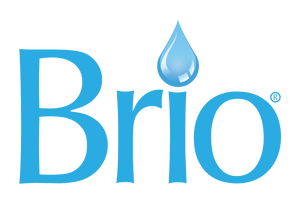Looking for a way to reduce waste, cut down on chemicals, and get into a better hydration routine? Bottleless water coolers are an eco-friendly water solution that helps you do all that and more.
Unlike traditional water dispensers or single-use plastic bottles, bottleless systems connect directly to your existing water supply and use long-lasting filters to provide clean, great-tasting water on demand. The result? A smarter setup that’s better for your health and the planet.
Here are the top 10 environmental benefits of switching to a bottleless water cooler.
1. Eliminates Single-Use Plastic Bottles

The most obvious benefit of bottleless water coolers is the elimination of disposable plastic bottles. With filtered water available anytime, there’s no need to keep buying cases of plastic bottles or grabbing one on the go. Recycling helps, but according to the U.S. Environmental Protection Agency (EPA), only 29% of plastic bottles actually get recycled. Bottleless water coolers mean less plastic in landfills and oceans—and one less item on your grocery list.
2. Reduces Reliance on 5-Gallon Plastic Bottles

Traditional water coolers depend on large plastic jugs that are manufactured, shipped, and replaced regularly. When these bottles eventually wear out, they end up in landfills, along with nearly 80% of plastic ever produced. Bottleless coolers completely eliminate the problem by connecting directly to a cold water line.
3. Cuts Down on Plastic Production and Raw Material Extraction

Producing plastic bottles uses nonrenewable fossil fuels, water, and chemicals. In North America alone, plastic production generates over 850 million metric tons of greenhouse gases. Choosing a bottleless system reduces demand for this high-impact manufacturing process, especially the petroleum-based plastic produced by fracking.
4. Lowers Carbon Emissions from Bottling and Transportation

Every step of the bottled-water supply chain, from the factory to the delivery truck, consumes fossil fuels and releases greenhouse gases. That’s in addition to the pollution caused by manufacturing plastic bottles.
Transporting a one-liter bottle of water emits about 0.25 kg of CO2. To put it another way, the global transportation of bottled water produces about the same amount of greenhouse gases as 6.3 million cars. With a bottleless cooler, your drinking water doesn’t need to travel. That small change can reduce the carbon footprint of your household or office.
5. Decreases Energy Use in Bottled Water Production

Most people don’t realize how much energy goes into cleaning, sanitizing, bottling, and refrigerating water before it reaches your home or office. Producing just one liter of bottled water uses about 0.21 megajoules of energy—about the same as running a laptop for an hour. Multiply that by billions of plastic bottles used annually in the U.S., and the cumulative energy cost is enormous. Bottleless water coolers skip all that. With access to your existing municipal or well water, you get instant cold or hot filtered water from your own supply.
6. Reduces Microplastic Pollution in the Environment

Plastic bottles don’t just disappear, especially when discarded instead of recycled. Over time, exposure to sunlight, friction, and heat breaks them down into tiny particles called microplastics. These fragments end up in drinking water, seafood, and even table salt, including the popular Himalayan pink salt.
While recycling helps, plastic still degrades. Switching to a bottleless water cooler reduces plastic waste and prevents more microplastics from entering the environment.
7. Prevents Ingestion of Chemicals Leached from Plastic Bottles

Plastics can release chemicals like BPA (bisphenol A) and phthalates into bottled water, especially when exposed to heat. Research shows that these chemicals have serious health risks. Even though many manufacturers offer BPA-free plastic, plenty of bottles that contain BPA are still on the market. Bottleless water coolers don’t rely on plastic containers, so they reduce your exposure to these potentially harmful substances.
8. Supports Sustainable Water Use with On-Demand Filtration

Using your current water supply is an eco-friendly water solution and one of the most sustainable hydration choices you can make. Brio’s filtration technology helps reduce the current strain on Earth’s water supply. With water purified at the point of use, you won’t rely on distant water sources or contribute to unsustainable water diversion practices.
9. Cuts Down on Packaging and Single-Use Items

Bottled water doesn’t just involve plastic bottles. Companies also use shrink wrap, cardboard, pallets, and other packaging materials to store and ship products. On top of that, many workplaces use disposable cups or paper products alongside bottled water coolers. With a bottleless cooler, you can reduce the carbon footprint of bottled water and encourage reusable hydration habits.
10. Supports Green Certifications and Workplace Sustainability

Bottleless water coolers can contribute to workplace sustainability initiatives by reducing plastic waste, energy use, and carbon emissions produced during manufacturing and transportation. For offices aiming to meet internal green standards or pursue certifications like LEED, switching to a bottleless system is a practical, eco-conscious step. It also signals to employees and visitors that your organization values environmental responsibility.
Choose Eco-Friendly Water Solutions with Brio

When you choose a bottleless water cooler, you’re not just improving your hydration routine. You’re investing in a cleaner, more sustainable future. Ready to make the switch? Brio’s eco-friendly water solutions make it easier than ever to reduce waste, avoid harmful chemicals, and drink better water every day.
Browse Brio bottleless coolers and bring home a smarter way to hydrate.




